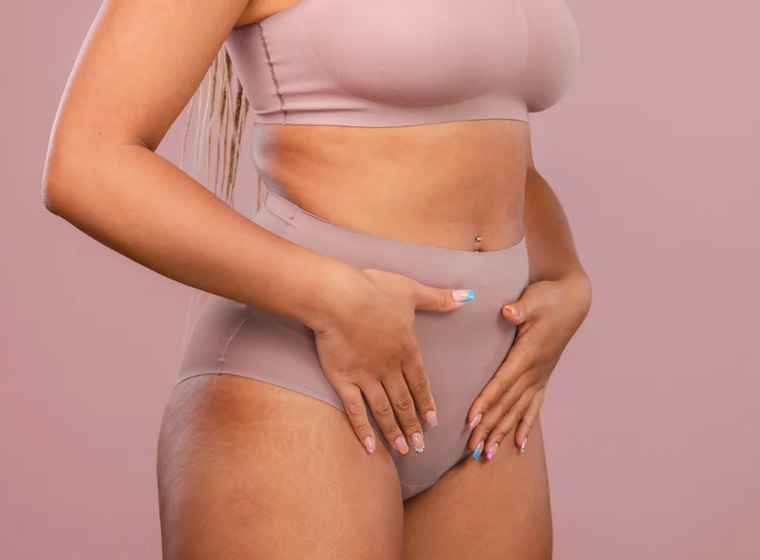
The Step-by-Step Guide to Liposuction Surgery
Liposuction surgery has become increasingly popular in recent years as a way to remove unwanted body fat and achieve a more contoured figure. In this comprehensive guide, we will take you through everything you need to know about liposuction surgery, from what it is and how it works to the benefits and potential risks involved. Whether you are considering liposuction for cosmetic reasons or as part of a larger body contouring procedure, this guide will provide you with the information you need to make an informed decision.
Liposuction Surgery: What is it and How Does it Work?
Liposuction surgery, also known as cosmetic fat removal or body contouring surgery, is a popular procedure for removing unwanted body fat and achieving a more contoured figure. This surgical process focuses on specific areas like the abdomen, thighs, hips, buttocks, arms, and neck.
The procedure involves making small incisions in the targeted area and using a suction device, known as a cannula, to remove excess fat cells. There are several techniques employed in liposuction surgery, each with its own advantages and considerations. These include:
Traditional Liposuction:
This method uses a suction device to remove fat cells after making small incisions. A shallow tube (cannula) is inserted through the small incisions and manipulated to break down the fat cells so they can be vacuumed out of the body.
Vaser Liposuction:
Using ultrasound technology, this method breaks up fat cells before suctioning them out.
Microaire Liposuction:
Also known as power-assisted liposuction, this type uses a power-assisted cannula that vibrates to break up fat cells. This is recommended for precise fat removal.
J Plasma Liposuction:
In this method, the surgeon makes a small incision of approximately 4 millimeters to insert a small cannula to suction the fat. Following this, the J-Plasma is used to tighten the skin. The heat generated by the flow of helium plasma energy triggers the production of natural collagen in the skin, creating a tightening effect.
Preparation: What to Know Before Getting Liposuction
Before undergoing liposuction surgery, it is important to be well-prepared both physically and mentally. Your surgeon will provide you with specific instructions to follow in the weeks leading up to the procedure. This may include ceasing the use of certain medications and supplements, quitting smoking, and maintaining a healthy diet and exercise routine.
During your pre-operative consultation, your surgeon will also discuss your expectations and goals for the surgery, as well as any potential risks or complications. It is important to have realistic expectations and to understand that liposuction is not a substitute for weight loss or a healthy lifestyle.
The Procedure
On the day of your liposuction surgery, you will be administered anesthesia to ensure your comfort throughout the procedure. The specific type of anesthesia used will depend on the extent of the surgery and your surgeon's recommendation.
Once the anesthesia has taken effect, your surgeon will make small incisions in the targeted area and insert a thin tube called a cannula. The cannula is connected to a suction device, which will be used to remove the excess fat cells. Your surgeon will carefully maneuver the cannula to break up the fat cells and suction them out.
The duration of the procedure will vary depending on the size and number of areas being treated. After the surgery is complete, your surgeon will close the incisions with sutures or adhesive strips and apply dressings or compression garments to help with healing and reduce swelling.
Recovery and Aftercare: What to Expect After Liposuction Surgery
After liposuction surgery, it is normal to experience some swelling, bruising, and discomfort in the treated areas. Your surgeon will provide you with specific instructions on how to care for the incisions and manage any post-operative pain. It is important to follow these instructions closely to ensure proper healing and minimize the risk of complications.
You will likely need to wear compression garments for a certain period of time to help reduce swelling and promote optimal results. Your surgeon will also schedule follow-up appointments to monitor your progress and remove any sutures or stitches.
It is important to note that the results of liposuction surgery are not immediately apparent. It can take several weeks or even months for the swelling to fully subside and for your final results to become visible. It is important to be patient and to follow your surgeon's aftercare instructions for the best possible outcome.
Benefits of Liposuction Surgery
There are numerous benefits to undergoing liposuction surgery:
Effective Fat Removal:
Liposuction can help to remove stubborn fat deposits that are resistant to diet and exercise, allowing you to achieve a more proportionate and contoured figure.
Improved Confidence:
Liposuction can also improve body confidence and self-esteem, leading to a greater overall sense of well-being.
Combination with Other Procedures:
Liposuction can be performed in conjunction with other body contouring procedures, such as tummy tucks or breast reductions, to achieve more comprehensive results. By combining procedures, you can address multiple areas of concern in a single surgery, reducing cost and recovery time.
Is Liposuction Right for You?
While liposuction surgery can be an effective solution for many individuals, it is not suitable for everyone. It is important to have a thorough consultation with a qualified surgeon to determine if liposuction is the right option for you. Factors such as overall health, lifestyle habits, and realistic expectations will all be taken into consideration.
It is also important to understand that liposuction is not a weight loss procedure. It is designed to remove localized pockets of fat and improve body contouring. If you are looking to lose a significant amount of weight, your surgeon may recommend alternative approaches, such as diet and exercise or bariatric surgery.
Liposuction in Turkey: The Go-to Destination
Turkey has become the first destination for those considering liposuction surgery, thanks to its advanced medical facilities, skilled surgeons, and competitive pricing. Istanbul Med Assist, a prominent medical tourism agency in Istanbul, offers a range of services, including liposuction, with a focus on ensuring patients have a positive and comfortable experience.
One notable aspect of Istanbul Med Assist is its VIP packages, providing personalized services at an affordable cost. These packages include well-arranged accommodations to improve the overall experience for patients seeking cosmetic procedures.
Istanbul Med Assist understands the importance of effective communication and assigns a personal assistant fluent in the patient's native language, eliminating language barriers and ensuring clear understanding throughout the process.
Conclusion
Liposuction surgery can be a highly effective way to remove excess fat and achieve a more contoured figure. By understanding the procedure, preparing properly, and following post-operative instructions, you can achieve optimal results.
If you are considering liposuction, be sure to consult with a qualified surgeon and consider reputable medical tourism agencies such as Istanbul Med Assist for a safe and successful experience.
Liposuction Price Turkey






